Military
NATO, Chicago Summit Declaration.
22 May 2012Issued by the Heads of State and Government participating in the meeting of the North Atlantic Council in Chicago on 20 May 2012 
We, the Heads of State and Government of the member countries of the North Atlantic Alliance, have gathered in Chicago to renew our commitment to our vital transatlantic bond; take stock of progress in, and reconfirm our commitment to, our operations in Afghanistan, Kosovo and elsewhere; ensure the Alliance has the capabilities it needs to deal with the full range of threats; and strengthen our wide range of partnerships.
20. NATO and the EU share common values and strategic interests. The EU is a unique and essential partner for NATO. Fully strengthening this strategic partnership, as agreed by our two organisations and enshrined in the Strategic Concept, is particularly important in the current environment of austerity; NATO and the EU should continue to work to enhance practical cooperation in operations, broaden political consultations, and cooperate more fully in capability development. NATO and the EU are working side by side in crisis management operations, in a spirit of mutual reinforcement, and in particular in Afghanistan, Kosovo and fighting piracy. NATO recognises the importance of a stronger and more capable European defence. NATO also recognises non-EU Allies’ ongoing concerns and their significant contributions to strengthening the EU’s capacities to address common security challenges. For the strategic partnership between NATO and the EU, non-EU Allies’ fullest involvement in these efforts is essential. In this context, NATO will work closely with the EU, as agreed, to ensure that our Smart Defence and the EU’s Pooling and Sharing initiatives are complementary and mutually reinforcing; we welcome the efforts of the EU, in particular in the areas of air-to-air refuelling, medical support, maritime surveillance and training. We also welcome the national efforts in these and other areas by European Allies and Partners. We also encourage the Secretary General to continue his dialogue with the EU High Representative with a view to making our cooperation more effective, and to report to the Council in time for the next Summit.
35. An independent, sovereign and stable Ukraine, firmly committed to democracy and the rule of law, is key to Euro-Atlantic security. Marking the fifteenth anniversary of the NATO-Ukraine Charter on a Distinctive Partnership, we welcome Ukraine’s commitment to enhancing political dialogue and interoperability with NATO, as well as its contributions to NATO-led operations and new offers made. We note the recent elimination of Ukraine’s highly enriched uranium in March 2012, which demonstrates a proven commitment to non-proliferation. Recalling our decisions in relation to Ukraine and our Open Door policy stated at the Bucharest and Lisbon Summits, NATO is ready to continue to develop its cooperation with Ukraine and assist with the implementation of reforms in the framework of the NATO-Ukraine Commission and the Annual National Programme (ANP). Noting the principles and commitments enshrined in the NATO-Ukraine Charter and the ANP, we are concerned by the selective application of justice and what appear to be politically motivated prosecutions, including of leading members of the opposition, and the conditions of their detention. We encourage Ukraine to address the existing shortcomings of its judicial system to ensure full compliance with the rule of law and the international agreements to which it is a party. We also encourage Ukraine to ensure free, fair and inclusive Parliamentary elections this autumn.
36. NATO-Russia cooperation is of strategic importance as it contributes to creating a common space of peace, stability and security. We remain determined to build a lasting and inclusive peace, together with Russia, in the Euro-Atlantic area, based upon the goals, principles and commitments of the NATO-Russia Founding Act and the Rome Declaration. We want to see a true strategic partnership between NATO and Russia, and we will act accordingly with the expectation of reciprocity from Russia.
37. This year, we mark the tenth anniversary of the establishment of the NATO-Russia Council (NRC) and the fifteenth anniversary of the NATO-Russia Founding Act. We welcome important progress in our cooperation with Russia over the years. At the same time, we differ on specific issues and there is a need to improve trust, reciprocal transparency, and predictability in order to realise the full potential of the NRC. In this context, we intend to raise with Russia in the NRC Allied concerns about Russia’s stated intentions regarding military deployments close to Alliance borders. Mindful of the goals, principles and commitments which underpin the NRC, and on this firm basis, we urge Russia to meet its commitments with respect to Georgia, as mediated by the EU on 12 August and 8 September 2008 3. We continue to be concerned by the build-up of Russia’s military presence on Georgia’s territory and continue to call on Russia to ensure free access for humanitarian assistance and international observers.
38. NATO and Russia share common security interests and face common challenges and our practical achievements together reflect that reality. Today, we continue to value the important role of the NRC as a forum for frank and honest political dialogue – including on subjects where we disagree – and for promoting practical cooperation. Our cooperation with Russia on issues related to Afghanistan – notably the two-way transit arrangements offered by Russia in support of ISAF, our joint training of counter narcotics personnel from Afghanistan, Central Asia, and Pakistan, and the NRC Helicopter Maintenance Trust Fund in support of a key ANSF need – is a sign of our common determination to build peace and stability in that region. NATO-Russia counter-terrorism cooperation has expanded and all NRC nations will benefit from the lessons to be learned from the first civil-military NRC Counter-Terrorism exercise, and the capabilities available under the NRC aviation counter-terrorism programme which is now operational. We also note with satisfaction our growing counter-piracy cooperation off the Horn of Africa. We are committed to, and look forward to, further improving trust and reciprocal transparency in: defence matters; strategy; doctrines; military postures, including of non-strategic nuclear weapons in Europe; military exercises; arms control and disarmament; and we invite Russia to engage with the Alliance in discussing confidence-building measures covering these issues.
47. With our vision of a Euro-Atlantic area at peace, the persistence of protracted regional conflicts in South Caucasus and the Republic of Moldova continues to be a matter of great concern for the Alliance. We welcome the constructive approach in the renewed dialogue on Transnistria in the 5+2 format, and encourage further efforts by all actors involved. With respect to all these conflicts, we urge all parties to engage constructively and with reinforced political will in peaceful conflict resolution, and to respect the current negotiation formats. We call on them all to avoid steps that undermine regional security and stability. We remain committed in our support of the territorial integrity, independence, and sovereignty of Armenia, Azerbaijan, Georgia, and the Republic of Moldova, and will also continue to support efforts towards a peaceful settlement of these regional conflicts, based upon these principles and the norms of international law, the United Nations Charter, and the Helsinki Final Act.
48. The Black Sea region continues to be important for Euro-Atlantic security. We welcome the progress in consolidating regional cooperation and ownership, through effective use of existing initiatives and mechanisms, in the spirit of transparency, complementarity and inclusiveness. We will continue to support, as appropriate, efforts based on regional priorities and dialogue and cooperation among the Black Sea states and with the Alliance.
52. A stable and reliable energy supply, diversification of routes, suppliers and energy resources, and the interconnectivity of energy networks, remain of critical importance. While these issues are primarily the responsibility of national governments and other international organisations concerned, NATO closely follows relevant developments in energy security. Today, we have noted a progress report which outlines the concrete steps taken since our last Summit and describes the way forward to integrate, as appropriate, energy security considerations in NATO’s policies and activities. We will continue to consult on energy security and further develop the capacity to contribute to energy security, concentrating on areas where NATO can add value. To this end, we will work towards significantly improving the energy efficiency of our military forces; develop our competence in supporting the protection of critical energy infrastructure; and further develop our outreach activities in consultation with partners, on a case-by-case basis. We welcome the offer to establish a NATO-accredited Energy Security Centre of Excellence in Lithuania as a contribution to NATO’s efforts in this area. We task the Council to continue to refine NATO’s role in energy security in accordance with the principles and the guidelines agreed at the Bucharest Summit and the direction provided by the new Strategic Concept as well as the Lisbon decisions. We task the Council to produce a further progress report for our next Summit.
Complete Text – NATO – Chicago.
“On the first day of its summit in Chicago, NATO has declared stage one of its European missile defense shield “provisionally operational.”
“It is the first step towards our long-term goal of providing full coverage and protection for all NATO European populations, territory and forces,” NATO Secretary General Anders Fogh Rasmussen told reporters on Sunday. 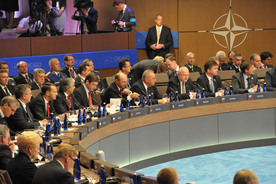
Specifically, this means that the United States has transferred command of a radar system in Turkey to NATO’s command and allowed the alliance to direct the missile defense system stationed on US ships. These ships can also be placed under NATO command. Spain, Turkey, Romania and Poland have agreed to deploy key parts of the U.S. missile defense system on their soil.
The White House says it expects initial operational capability by 2015, while the system will be fully functional in 2018. All 28 members of the alliance will participate in the financing.
The missile defense shield has created tension with Russia, which views the system as a threat. Rasmussen stressed that Russia has no influence on the sovereign decision of NATO’s member states but still invited Moscow to co-operate in discussions on the subject. German Foreign Minister Guido Westerwelle also said ahead of the summit that Russia is welcome to work on a joint security strategy for Europe: “The door remains open for Russia.” …
Article – Deutsche Welle
Russian-NATO Cooperation in Ulyanovsk.
21 Mar 2012“Russia has suggested to NATO it could use its own airport near Ulyanovsk if Manas transit shipment centre is closed, Voice of America reported.
‘The Russian government plans to use the airport near Ulyanovsk as a transit point for NATO coalition troops in Afghanistan’, the statement said. ‘Moscow allowed NATO to supply coalition forces in Afghanistan through Russia by railway for three years. One of Russia’s airports in Ulyanovsk may be also be used to deliver military cargo’. 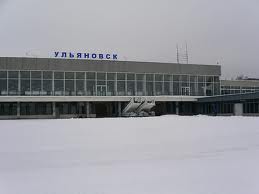
According to the plan, military aircraft will fly out of Kabul, then over Central Asia to land 3000 kilometres away in Ulyanovsk.
Russian Foreign Minister Sergei Lavrov told the Russian Duma members that the use of the airport by the NATO military is in Russia’s interest, as this will facilitate the orderly withdrawal of NATO troops from Afghanistan by December 2014 as was planned.
The agency stressed that the Russian leadership’s decision was announced the day after the Kyrgyz authorities told U.S. Secretary of Defence Leon Panetta that they did not intend to prolong the lease term of the U.S. Air Force base Manas which expires in July 2014.
Expert on security issues in Central Asia Joshua Kucera, working in Washington, thinks that this statement of the Kyrgyz leadership can simply mean that it is time to begin lease negotiations with the new president Almazbek Atambayev, Voice of America said.
Kucera said that Ulyanovsk will be a fall-back option if Manas is closed and on the other hand, Manas is a fall back option in case of overlapping the channels passing through the territory of Pakistan.”
From TREND News Agency
—
“NATO, Russia and the Central Asian’s countries have a number of common interests in the region, James Appathurai, NATO Secretary General’s Special Representative for the Caucasus and Central Asia told in an interview with atlantic-community.org.
Appathurai said he would like to reject the opinion that the West and Russia are competing for influence in the Central Asia.
“We have common interests in Central Asia. And I mean common with the Central Asian countries and NATO, and common between all three if we include Russia as well,” he said.
First common interest is the stability in Afghanistan as vital for all that Afghanistan does not once again begin exporting terrorism, extremism, or continue exporting drugs, which of course hit all, Appathurai mentioned.
“So we have an interest in stabilizing Afghanistan, shared by all of us. And the best way to do that is to cooperate,” he added.
Appathurai added that NATO, Russia, and Central Asia for example train together their counter narcotic officials, particularly Central Asian, Afghan but also now Pakistani.
Russia plays a very important role in this joint project with NATO allies, he said, and it works very well.
The other NATO’s interest in the region is to help the Central Asian countries reach their full potential, including as transit areas for trade, as production and transit areas for energy and that is a mutual interest for everybody, Appathurai added.
“The Central Asian countries are concerned that when 2014 arrives and the Alliance has a much smaller and different presence in Afghanistan, that they will be left with a problem or a growing problem of instability, and terrorism, and extremism, and drugs,” he mentioned.
The NATO is committed for the long term to Afghanistan’s stability and committed not just rhetorically or politically, the alliance will have people on the ground doing work to help the Afghans stabilize their own country, Appathurai stressed.
“We will also work with the Central Asian countries so that they can protect themselves better, fight against and defend against these many threats. So we’re going to offer them more consultation, more exercises, more joint training to help them beef up their own capacity to handle these problems,” he added.”
From TREND News Agency
La Russia ha intenzione di dislocare propri missili e sistemi informativi sofisticati nell’enclave di Kaliningrad sul Baltico, in Bielorussia e nella regione meridionale di Krasnodar se il negoziato con gli Stati Uniti per il cosiddetto “Scudo spaziale” europeo non desse risultati positivi. 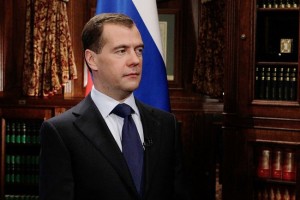
Mosca non è così sicura che gli occidentali vogliano costruire questo mantello per difendersi da eventuali lanci iraniani. Il vero obiettivo segreto, si teme al Cremlino, potrebbe essere proprio l’ex superpotenza comunista.
L’annuncio di Medvedev giunge in un periodo davvero complicato. Da mesi russi ed americani stanno trattando dietro alle quinte sulla creazione di un sistema di difesa antimissilistico comune europeo. Le reciproche diffidenze non permettono, però, ancora il passo decisivo che porti ad un accordo, la cui data ultima sarebbe fissata prima del vertice Nato di Chicago del maggio 2012. In caso di fallimento vi è il rischio di una prossima nuova “Guerra Fredda”.
A cui, tuttavia, sono in pochi a credere. Uno dei principali meriti della presidenza Medvedev in politica estera è stato proprio lo scongelamento dei rapporti con Washington dopo il gelo tra Bush e Putin. Il capo del Cremlino uscente sta ora semplicemente battendo i pugni sul tavolo per difendere le richieste russe davanti ai troppi “no” americani.
Secondo gli specialisti militari gli occidentali non hanno alcuna intenzione di abbandonare i loro progetti sullo Scudo europeo. E se Mosca desse seguito alle sue minacce commetterebbe un errore strategico imperdonabile isolandosi e buttandosi tra le braccia della Cina.
La dichiarazione di Medvedev va letta anche in chiave di politica interna. Il 4 dicembre si vota in Russia per le legislative e, stando ai sondaggi, le cose non vanno secondo i piani del Cremlino. La sua formazione, Russia Unita, dovrebbe vincere le elezioni, ma non in maniera così convincente come Putin e Medvedev sperano. I fischi al premier, allo stadio moscovita Olimpiskij, sono stati un campanello d’allarme, suonato anche in altre città. La crisi economica, importata dall’Occidente, si inizia a sentire e le misure fin qui adottate paiono essere non convincenti.
Giuseppe D’Amato
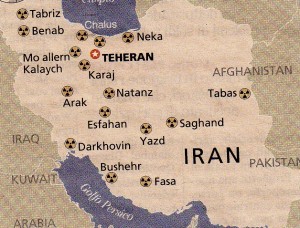 La Russia è fortemente preoccupata per la situazione nel Golfo Persico. La sua diplomazia si muove per evitare l’irreparabile. Il rischio di una nuova guerra è alto. Un attacco israeliano all’Iran “sarebbe un errore molto grave dalle conseguenze imprevedibili”, ha sottolineato Serghej Lavrov. Serve, ha spiegato il ministro degli Esteri russo, una decisa iniziativa per tornare al tavolo dei negoziati ed uscire dall’attuale vicolo cieco. Il monito di Mosca giunge, quando pare che un’azione militare dei cacciabombardieri con la stella di Davide contro una decina di installazioni atomiche iraniane sia ormai questione di ore.
La Russia è fortemente preoccupata per la situazione nel Golfo Persico. La sua diplomazia si muove per evitare l’irreparabile. Il rischio di una nuova guerra è alto. Un attacco israeliano all’Iran “sarebbe un errore molto grave dalle conseguenze imprevedibili”, ha sottolineato Serghej Lavrov. Serve, ha spiegato il ministro degli Esteri russo, una decisa iniziativa per tornare al tavolo dei negoziati ed uscire dall’attuale vicolo cieco. Il monito di Mosca giunge, quando pare che un’azione militare dei cacciabombardieri con la stella di Davide contro una decina di installazioni atomiche iraniane sia ormai questione di ore.
Almeno è questo che si è desunto dalle parole chiarissime del presidente israeliano Shimon Peres, che parla di “attacco probabile”. L’’Aiea, l’agenzia internazionale per il controllo dell’energia atomica, ha appena pubblicato un rapporto sull’Iran. Alcuni suoi stralci erano stati, però, già resi noti da un quotidiano statunitense nei giorni scorsi.
Teheran si sarebbe presa gioco della comunità internazionale e le sanzioni della Nazioni Unite non sarebbero servite a nulla. Le prove definitive sul carattere militare del programma atomico degli ayatollah sarebbero la creazione al computer di testate nucleari e le fotografie scattate dai satelliti di un enorme container di acciaio usato per test ad alta capacità esplosiva. In Russia si discute del ruolo chiave svolto dall’esperto “sovietico” Vjaceslav Danilenko, che avrebbe anche insegnato agli iraniani a sviluppare detonatori ad alta precisione. Con lui hanno collaborato al programma militare specialisti pakistani e nord coreani.
Un giornale russo ha tentato di identificare questo Vjaceslav Danilenko. Ve ne sono due – con identico nome e cognome, ma diverso patronimico – che lavorano in questo campo: uno ucraino, l’altro russo. L’ucraino ha negato di avere mai avuto rapporti con l’Iran. Il secondo, invece, avrebbe avuto contatti con Teheran negli anni Cinquanta. L’opinione diffusa a Mosca è che la fuga di notizie dagli Usa sia stata non casuale e che l’Iran non ha ancora sviluppato capacità militari.
Qualche mese fa la Russia, dopo anni di ritardi, ha consegnato la centrale atomica ad usi civili di Bushehr, la prima in funzione in Iran. Gli americani avevano espresso la loro contrarietà, ma Mosca ha fornito ampie rassicurazioni al riguardo.
Stando ad alcuni analisti militari gli Stati Uniti, ancora infuriati per il recente fallito complotto iraniano organizzato per uccidere l’ambasciatore saudita a Washington, potrebbero appoggiare l’azione israeliana dalle portaerei dislocate nel golfo Persico.
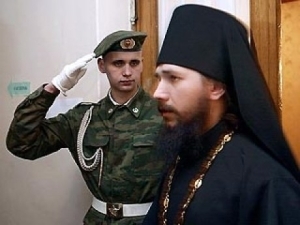 For the first time in the history of modern Russian Army Forces a training for priests and military officials has been organized. The event takes place in the southern city of Rostov-on-Don and it is attended by army chaplains, who have already started working with troops, and by military officials of the Department for relationship with religious soldiers. The main issue of the meeting is to collect requirements and recommendations for dealing with religious people in the Army.
For the first time in the history of modern Russian Army Forces a training for priests and military officials has been organized. The event takes place in the southern city of Rostov-on-Don and it is attended by army chaplains, who have already started working with troops, and by military officials of the Department for relationship with religious soldiers. The main issue of the meeting is to collect requirements and recommendations for dealing with religious people in the Army.
On July 21, 2009 President Dmitry Medvedev supported the initiative of the leaders of the major Russian religious communities to recreate the institution of military clergy abolished in 1918. According to the following approved program in the Russian Army there will be 240 staff positions of priests and nine civilian positions to coordinate chaplains’ activity. Since the beginning of 2011 the Black Sea Fleet and the Russian military bases in the republics of Abkhazia, South Ossetia and Armenia have their own religious personnel.
Переговоры по ПРО «зашли в тупик».
24 Oct 2011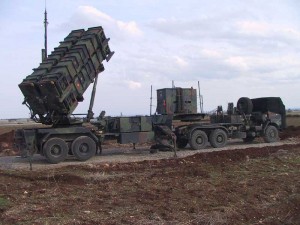 «Проблему ЕвроПРО поднимали сенаторы США при утверждении на должность нового посла США в Москве Майкла Макфола, который, кстати, заявил на Капитолийском холме, что переговоры между Россией и США по вопросу ПРО «зашли в тупик». Внешнеполитическое ведомство России крайне резко отреагировало на решение Вашингтона и Мадрида разместить еще одну американскую противоракетную базу в испанском порту Рота в составе четырех кораблей с системой «Иджис» и ракетами-перехватчиками СМ-3. МИД заявил, что происходит неприемлемое существенное наращивание американского противоракетного потенциала без коллективного обсуждения этого процесса и учета мнения всех заинтересованных сторон, а это может повлиять на стабильность и безопасность в Евроатлантике….
«Проблему ЕвроПРО поднимали сенаторы США при утверждении на должность нового посла США в Москве Майкла Макфола, который, кстати, заявил на Капитолийском холме, что переговоры между Россией и США по вопросу ПРО «зашли в тупик». Внешнеполитическое ведомство России крайне резко отреагировало на решение Вашингтона и Мадрида разместить еще одну американскую противоракетную базу в испанском порту Рота в составе четырех кораблей с системой «Иджис» и ракетами-перехватчиками СМ-3. МИД заявил, что происходит неприемлемое существенное наращивание американского противоракетного потенциала без коллективного обсуждения этого процесса и учета мнения всех заинтересованных сторон, а это может повлиять на стабильность и безопасность в Евроатлантике….
Одна из дискуссий состоялась недавно в Брюсселе. Там заседала совместная российско-американская Группа технических экспертов по сотрудничеству в области ПРО…отношения между Россией и США все еще базируются на взаимном ядерном сдерживании. Однако политика «перезагрузки» подталкивает Вашингтон и Москву к «стратегической кооперации», основанной, согласно заявлению президентов Дмитрия Медведева и Барака Обамы, на «взаимном доверии, открытости, предсказуемости и сотрудничестве». …американская система ПРО в Европе может как внести вклад в общее дело, так и похоронить его в случае ненахождения взаимоприемлемых решений и отказа от сотрудничества. При развитии событий по негативному сценарию мир ожидает новая гонка вооружений. В то же время сотрудничество по ПРО, напротив, сможет повысить транспарентность и доверие…
Кроме общеполитических рекомендаций, в совместном заявлении российско-американской группы экспертов приводятся конкретные предложения по осуществлению практического сотрудничества. Одно из таких предложений – вернуться к вопросу создания Совместного центра обмена данными (СЦОД) не только российско-американского, но и, возможно, европейского, в рамках сотрудничества Россия–НАТО…
Наряду с предложениями предлагается возобновить проведение совместно командно-штабных учений (КШУ) по ПРО, за которыми могли бы последовать совместные полевые учения. …
Серьезное сотрудничество не может работать без доверия. Поэтому позиция России полностью понятна и проста, когда она требует от своих партнеров по совету Россия–НАТО предоставления твердых, в том числе юридически обязывающих гарантий, что разрабатываемая и развертываемая в Европе ПРО не будет подрывать ответный ракетно-ядерный потенциал СЯС России. При этом необходимо понимать, что ЕвроПРО является сегментом глобальной ПРО США…
Российские и американские ученые говорили также и о том, что у переговоров России с США/НАТО есть еще одно измерение – отношение к американским планам усиления их противоракетного потенциала со стороны третьих стран. Например, Индия уже активно разрабатывает свою систему ПРО, обратившись за содействием к США и Израилю. Программы создания ПРО осуществляют Япония, Тайвань и Южная Корея в сотрудничестве с США. Китай также вынужден решать вопрос о разработке систем ПРО…».
Статья – Виктор Литовкин – Независимое военное обозрение 21.10.2011
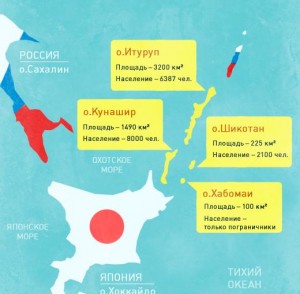
Южные Курилы / Северные территории
«Развитие связей с американскими и европейскими IT-фирмами позволяет надеяться на хорошие перспективы в будущем. Однако что-то все-таки здесь не так. Среди приглашенных партнеров отсутствуют японцы.
А как можно забыть страну, которая, судя только по уровню инфраструктуры и технологического развития, живет на 20 лет впереди Европы и как минимум на 50 лет впереди России? Прошлым летом я встречался в Москве и в Токио с авторитетными специалистами из двух стран, чтобы разобраться в известном споре о Южных Курилах, или, «по-японски», Северных территориях…
Эта колонка — не место, чтобы вникать в те сложные дискуссии и выявлять детали, решающие вопрос в пользу одних или других. В принципе и россияне, и японцы имеют основательные аргументы… обе стороны постоянно стараются скрывать важность проблемы спорных островов с военной точки зрения. Именно в этой зоне есть единственные достаточно глубокие и не замерзающие зимой проливы, гарантирующие российским подводным лодкам вход в Тихий океан…
А вот результаты этой анахронической ситуации у всех перед глазами. Москва и Токио еще не подписали мирный договор после окончания Второй мировой войны… Но мир изменился с прошлого века, и с этим рано или поздно надо смириться… Я не желал бы выступать здесь адвокатом японцев… Однако некоторые вещи в этом деле очевидны… После окончания войны Япония превратилась в одну из самых развитых стран в мире. Она, как и Германия, постепенно переносила свою традиционно масштабную внутреннюю силу с военного сектора на экономику… Во все эти годы несогласия российско-японские экономические отношения понесли серьезный ущерб… Особенно это заметно в технологической и энергетической отраслях…
Не стоит забывать и о непосредственном влиянии этого спора на некоторые геополитические аспекты развития России на Востоке. До сих пор трудно понять некоторые расчеты, связанные с российской политикой в Китае… история, кажется, ничему не учит. В ХХ веке столько крови пролилось в Советском Союзе и в России ради противостояния новым растущим державам! Мы, конечно, надеемся, что в будущем китайские партнеры обратят все свои усилия на экономику, но, с другой стороны, они начали создавать мощный флот. И военные специалисты считают, что это является первым шагом в политике великодержавной экспансии…
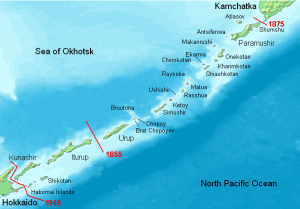
Спор о Южных Курилах можно сравнить со спором о Катыни с поляками — по той остроте и злу, которые спровоцировали ущерб для России. Пора его уже как-то решить. Возможности перезагрузить отношения после недавней трагедии с цунами напрасно были упущены…»
Статья Джузеппе Д’Амато Московский Комсомолец № 25709 от 3 августа 2011 г. Giuseppe D’Amato Moskovskij Komsomolets.
«Официальная дата кончины СССР — декабрь 1991 года. Но в некотором смысле Советский Союз все еще распадается. Стратегическое влияние сразу не исчезает. Оно выдавливается капля за каплей…Лидеры России, естественно, стараются остановить этот процесс. Но это все равно что пытаться повернуть время вспять. Большая игра была проиграна уже давно. И в последние двадцать лет мы имеем дело лишь с закономерными последствиями уже произошедших событий…
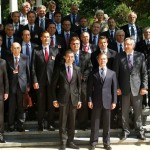
С участниками заседания Совета Россия – НАТО. Kremlin.ru
Патриоты-державники могут в это не поверить. Но ослабление России не является главной целью западного плана по созданию глобальной ПРО. На публике американские и европейские ястребы любят раздувать страшилки о страшной злокозненности и скрытых возможностях страны Путина. Но наедине с самим собой даже самый ярый путиноненавистник признает: современная Россия не является реальной угрозой Западу. Даже если вывести за скобки отсутствие желания, у нас для этого нет возможностей. Зачем же тогда янки и их союзникам по НАТО глобальная ПРО? Это в нынешней России принято относиться со скепсисом к любым многолетним планам. Западные стратеги просчитывают угрозы своей безопасности на годы и десятилетия вперед…
Страх — чуть не самый главный мотиватор человеческого поведения. Поэтому сомнений в необходимости создания глобальной ПРО в Америке по большому счету нет ни у республиканцев, ни у демократов. Как с горечью поняли российские лидеры, ястреб Буш и голубь Обама в этом вопросе различаются лишь в нюансах».
Статья Михаил Ростовский Московский Комсомолец № 25684 от 5 июля 2011 г. Mikhail Rostovsky Moskovskij Komsomolets
Stop allo Scudo anti-missilistico occidentale.
22 Jun 2011Un “no” deciso allo Scudo anti-missilistico occidentale. Dopo mesi di trattative dietro alle quinte russi e cinesi hanno espresso pubblicamente la loro contrarietà. Si teme una nuova prossima corsa agli armamenti in stile Guerra Fredda. 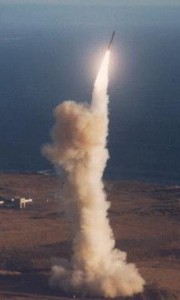
Come si ricorderà gli Stati Uniti di Obama hanno modificato il progetto originario di George Bush, abbassando il rischio esterno di lanci isolati di vettori da parte dei Paesi cosiddetti “canaglia”, Iran e Corea del Nord su tutti. Gli americani, in pratica, intendono creare non più difese globali, ma mettere in piedi dei sistemi regionali contro missili a corto e medio raggio. Mosca è stata invitata da Washington a partecipare al progetto europeo insieme alla Nato, ma qualcosa, evidentemente, non sta funzionando. Gli incontri tra specialisti militari non avrebbero dato finora esiti favorevoli.
Il problema, in realtà, pare più politico. In Russia si stanno avvicinando le elezioni generali. Si voterà a dicembre per le legislative e nel marzo 2012 per le presidenziali. Tradizionalmente i politici federali, troppo schiacciati su posizioni pro-occidentali, fanno fatica ad imporsi. Inoltre il nodo su chi tra Dmitrij Medvedev ed il premier Vladimir Putin si presenterà candidato non è ancora stato sciolto e la “telenovela” tra i due è destinata a durare a lungo.
Nei giorni scorsi la Repubblica ceca ha annunciato di rinunciare ad ospitare uno dei siti del mini-Scudo regionale. I repubblicani americani se la sono subito presa con il presidente Barack Obama, accusato di aver venduto gli alleati dell’Europa orientale ai russi, con la sua politica estera di eccessive aperture al Cremlino.
La scelta di Praga, al contrario, è stata salutata positivamente da Mosca, che teme che quelle difese anti-missilistiche nel Vecchio Continente servano non contro lanci di lontani nemici bensì per tentare di mettere sotto controllo il suo arsenale.
Nelle settimane in cui nessuno se le manda a dire è entrato in campo a sorpresa anche il segretario della Nato Anders Fogh Rasmussen, che ha definito come “soldi buttati via” il progetto russo per lo sviluppo di nuovi missili balistici intercontinentali. “Questo tipo di retorica – ha osservato il capo dell’Alleanza Atlantica – non è necessaria; questo tipo di mentalità è fuori dai tempi”. Pronta la replica del capo dello Stato maggiore federale Ivashov, che ha affermato come “I loro progetti non li ha capiti nessuno”. La crisi libica in pieno sviluppo e dalle molte incognite, la possibile discussione al Consiglio di Sicurezza dell’Onu per una risoluzione sulla Siria e l’avvicinarsi degli appuntamenti elettorali in Russia sono un cocktail poco digeribile. Il caldo dell’estate porta inatteso nervosismo.
Welcome
We are a group of long experienced European journalists and intellectuals interested in international politics and culture. We would like to exchange our opinion on new Europe and Russia.
Categories
- Breaking News (11)
- CIS (129)
- Climate (2)
- Energy&Economy (115)
- EU Eastern Dimension (85)
- Euro 2012 – Sochi 2014 – World Cup 2018, Sport (43)
- Euro-Integration (135)
- History Culture (198)
- International Policy (261)
- Military (74)
- Interviews (18)
- Italy – Italia – Suisse (47)
- Odd Enough (10)
- Poland and Baltic States (126)
- Religion (31)
- Russia (421)
- Survey (4)
- Turning points (4)
- Ukraine (176)
- Российские страницы (113)
Archives
- November 2020
- October 2020
- September 2020
- August 2020
- July 2020
- May 2020
- April 2020
- March 2020
- January 2020
- December 2019
- November 2019
- October 2019
- September 2019
- August 2019
- July 2019
- June 2019
- May 2019
- April 2019
- March 2019
- February 2019
- December 2018
- November 2018
- October 2018
- September 2018
- August 2018
- July 2018
- June 2018
- May 2018
- April 2018
- March 2018
- February 2018
- January 2018
- December 2017
- November 2017
- October 2017
- September 2017
- August 2017
- July 2017
- May 2017
- March 2017
- January 2017
- December 2016
- November 2016
- October 2016
- September 2016
- July 2016
- June 2016
- May 2016
- April 2016
- February 2016
- January 2016
- November 2015
- October 2015
- September 2015
- June 2015
- April 2015
- March 2015
- February 2015
- January 2015
- December 2014
- November 2014
- October 2014
- September 2014
- August 2014
- July 2014
- June 2014
- May 2014
- April 2014
- March 2014
- February 2014
- January 2014
- December 2013
- November 2013
- October 2013
- September 2013
- August 2013
- July 2013
- June 2013
- May 2013
- April 2013
- March 2013
- February 2013
- January 2013
- December 2012
- November 2012
- October 2012
- September 2012
- August 2012
- July 2012
- June 2012
- May 2012
- April 2012
- March 2012
- February 2012
- January 2012
- December 2011
- November 2011
- October 2011
- September 2011
- August 2011
- July 2011
- June 2011
- May 2011
- April 2011
- March 2011
- February 2011
- January 2011
- December 2010
- November 2010
- October 2010
- September 2010
- August 2010
- July 2010
- June 2010
- May 2010
- April 2010
- March 2010
- February 2010
- January 2010
- December 2009
- November 2009
- October 2009
- September 2009
- August 2009
Our books




